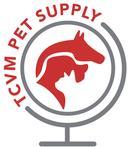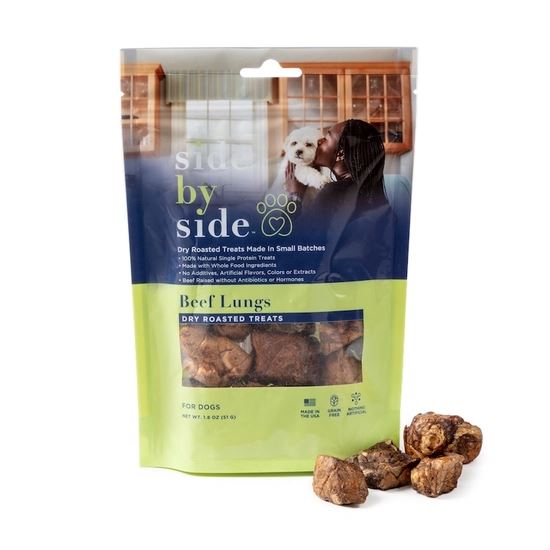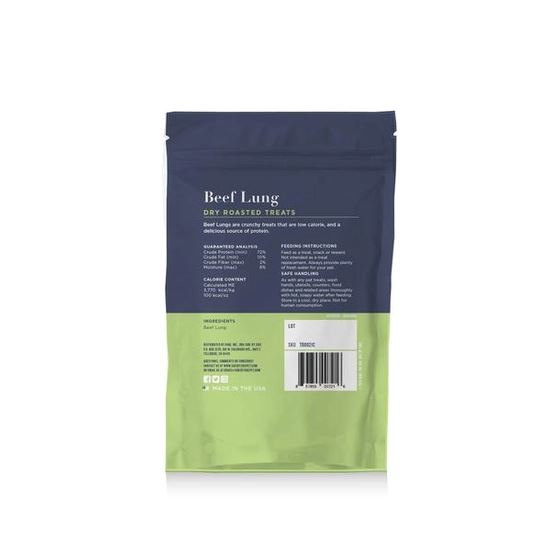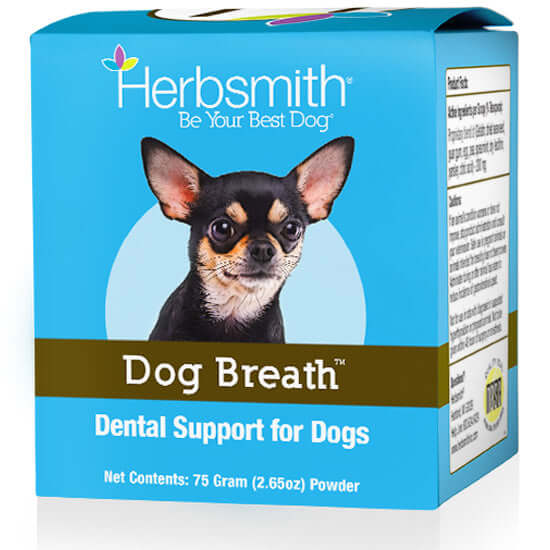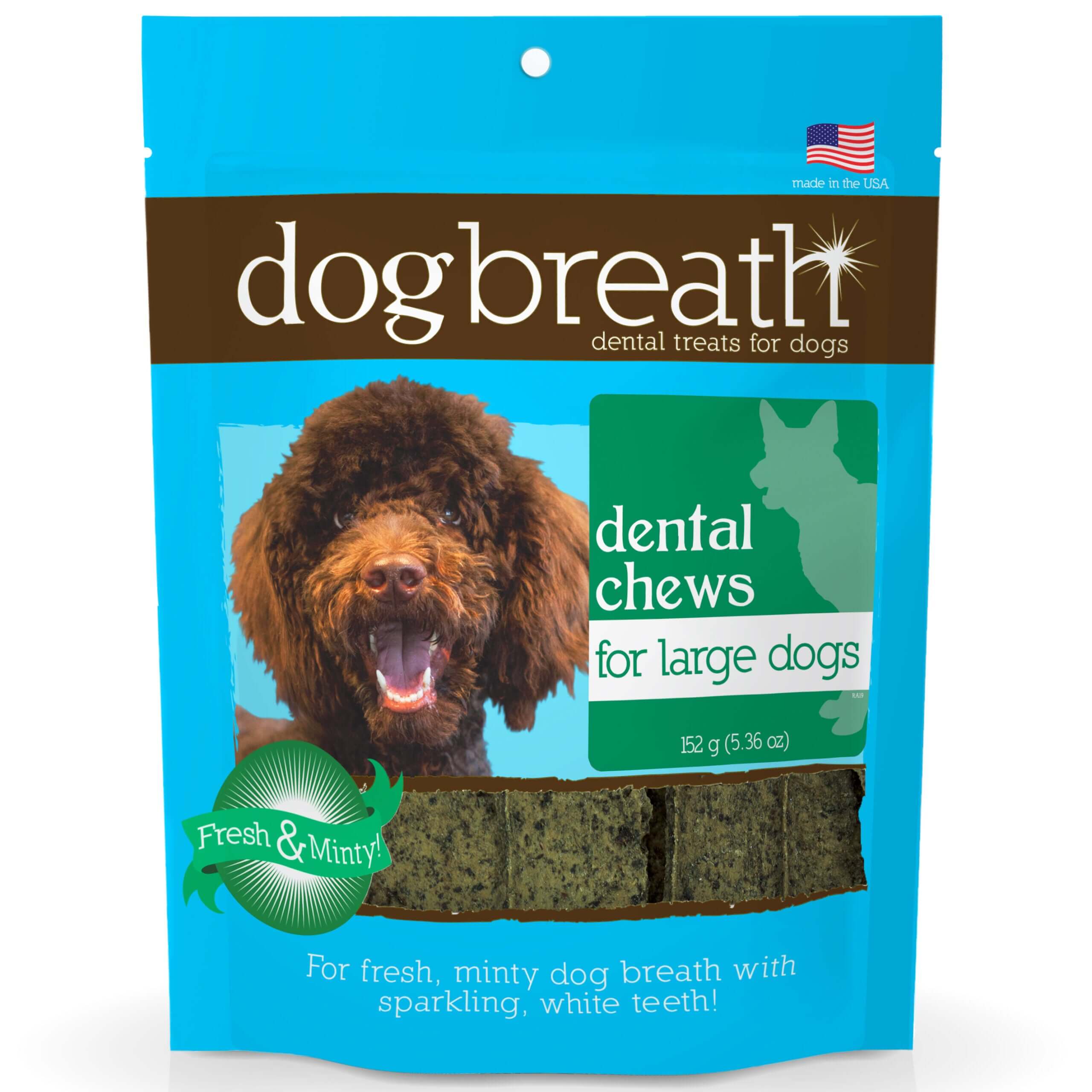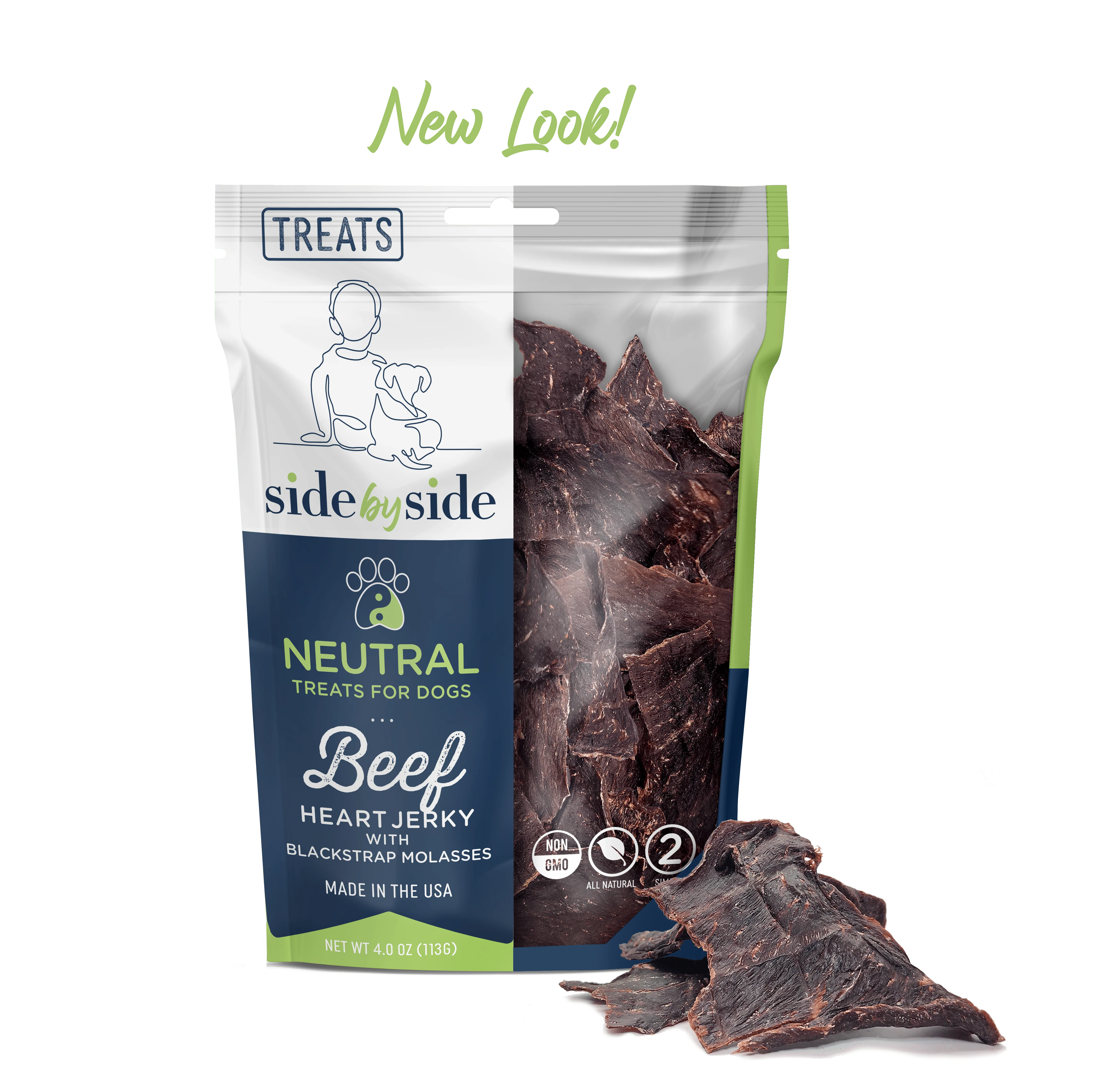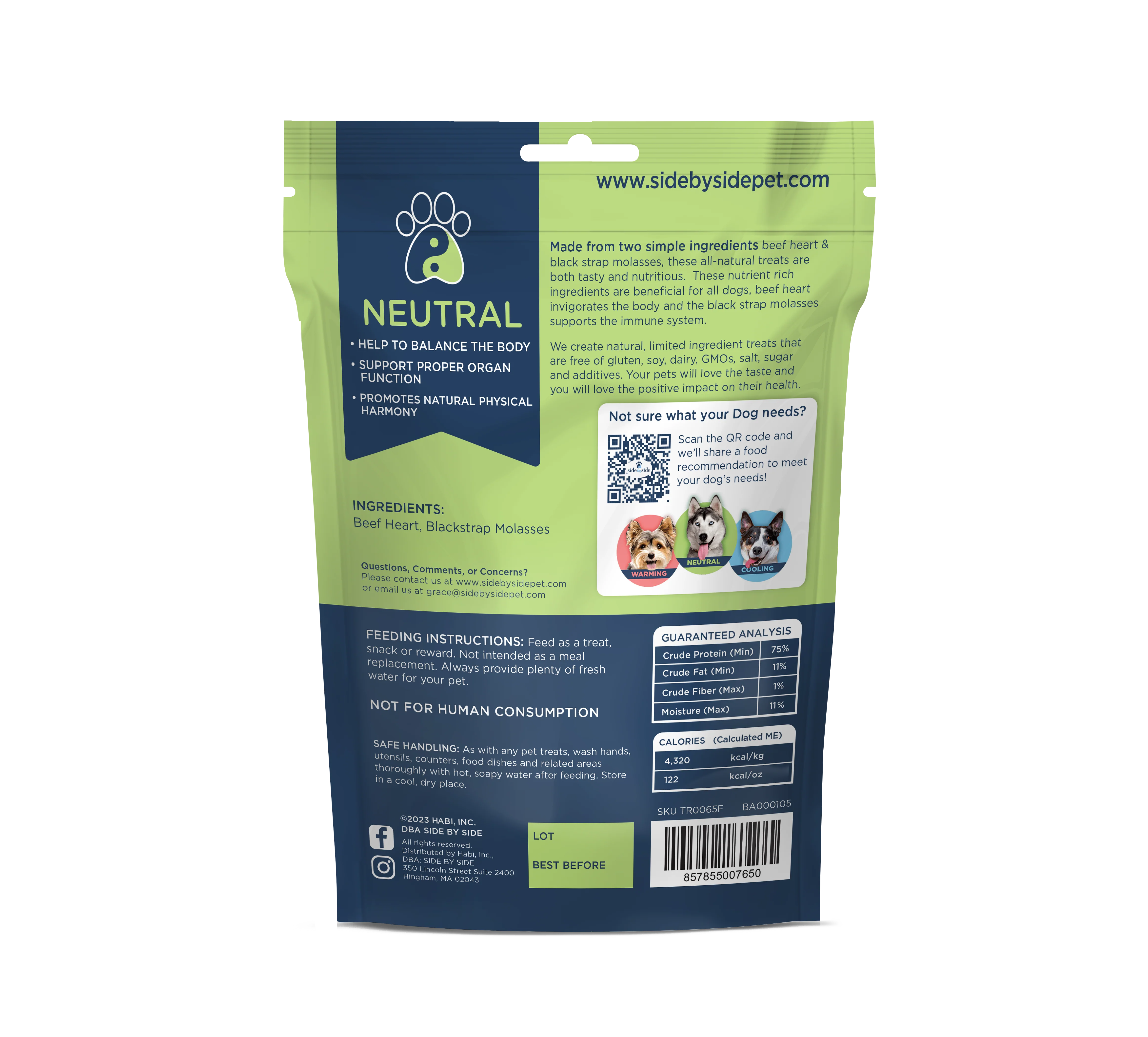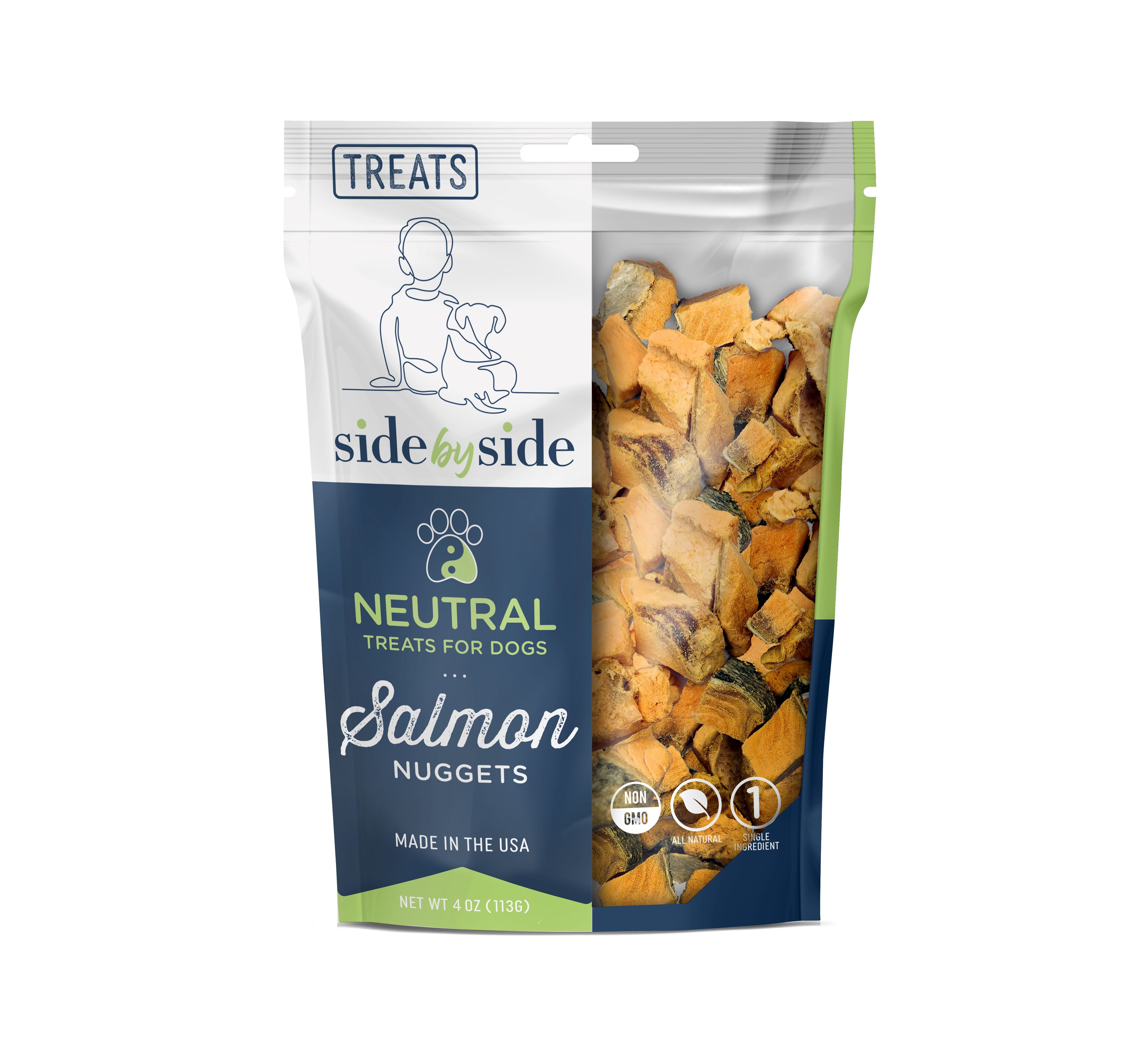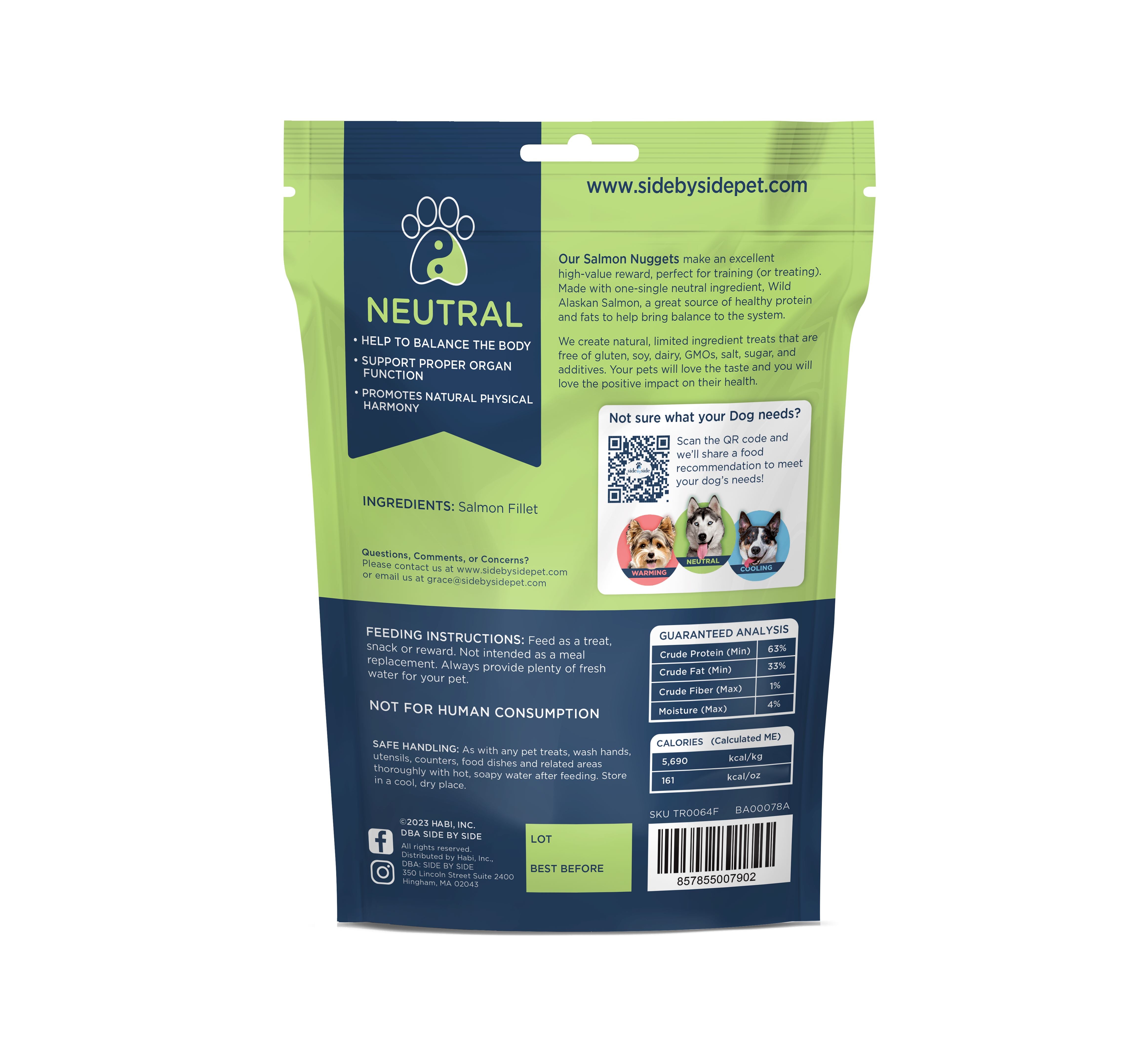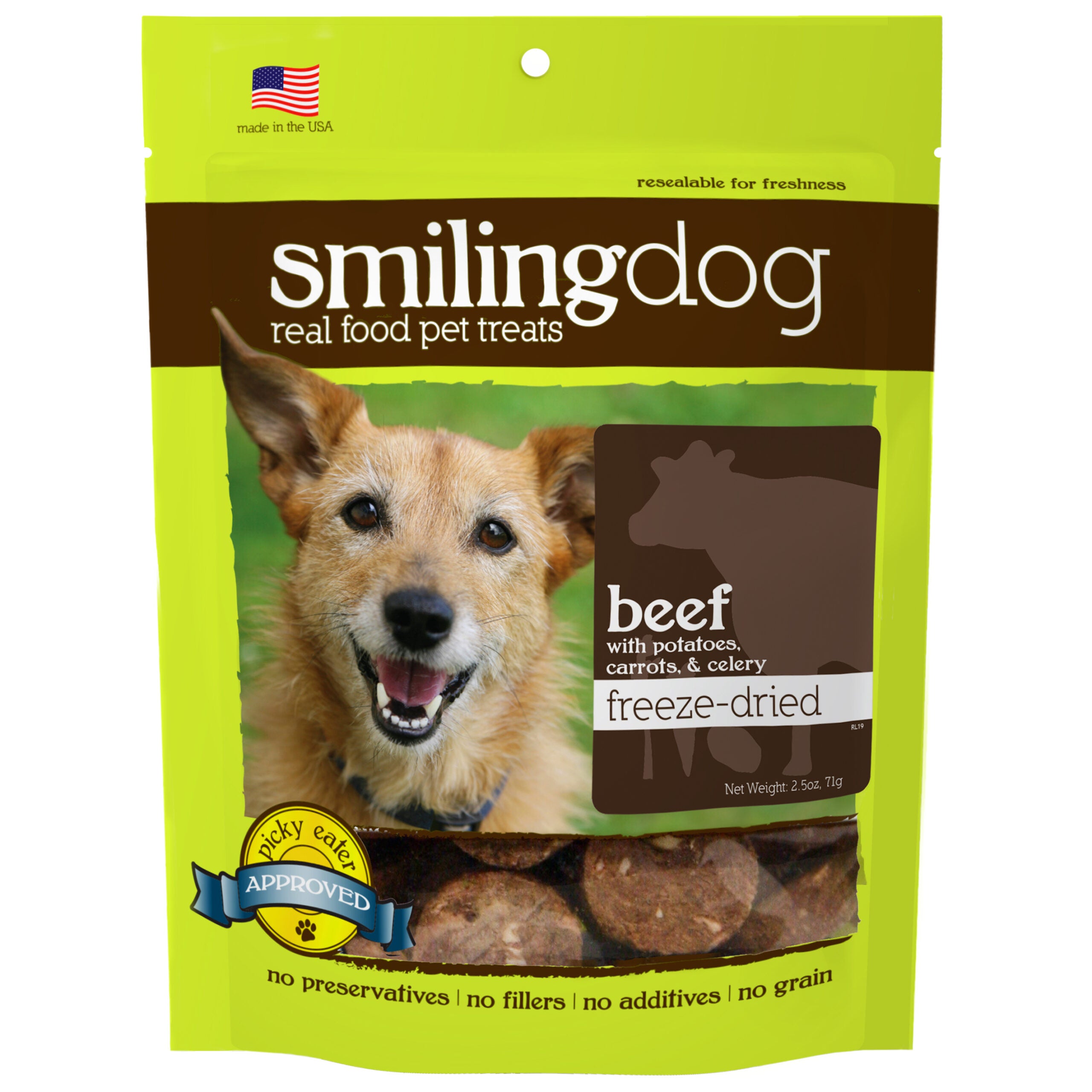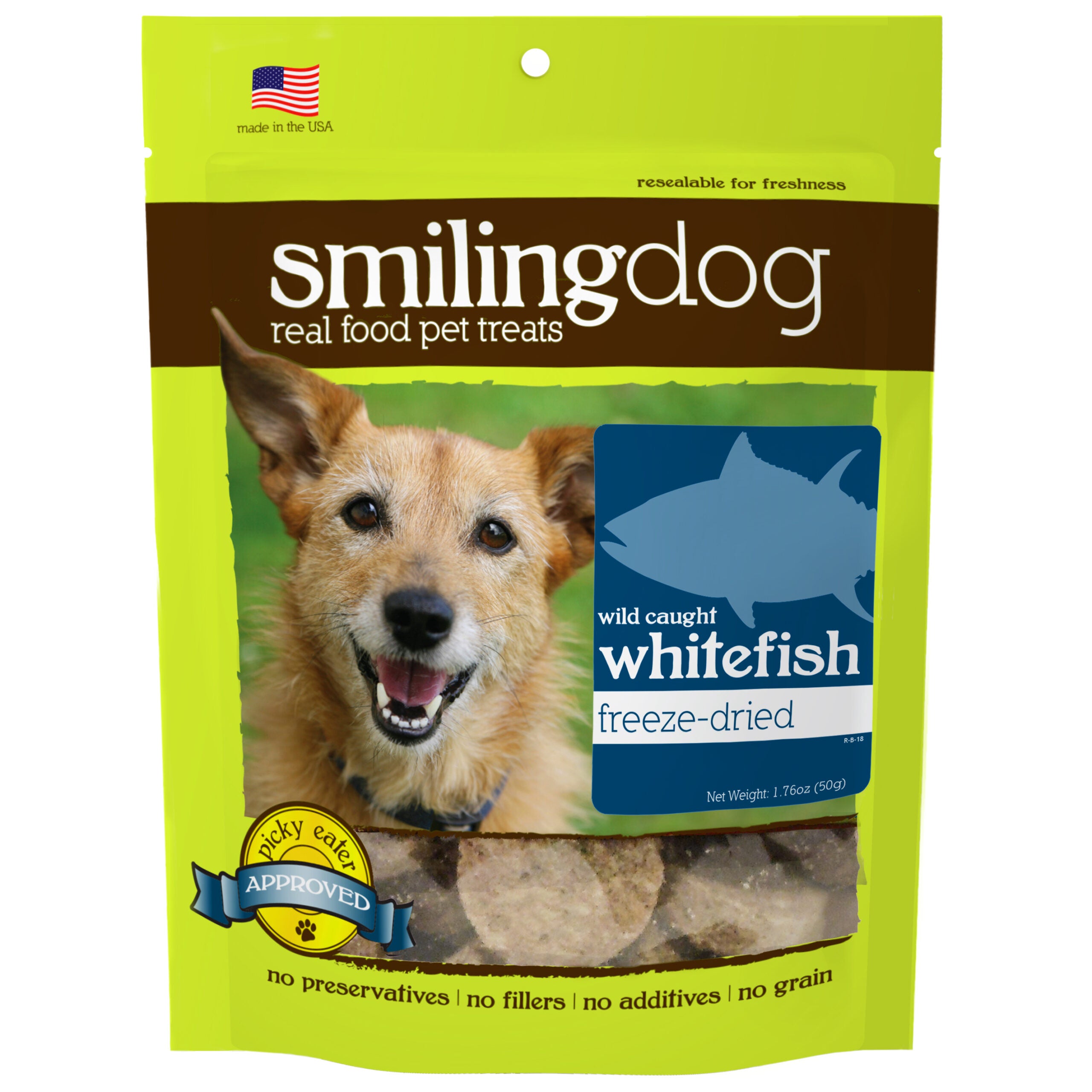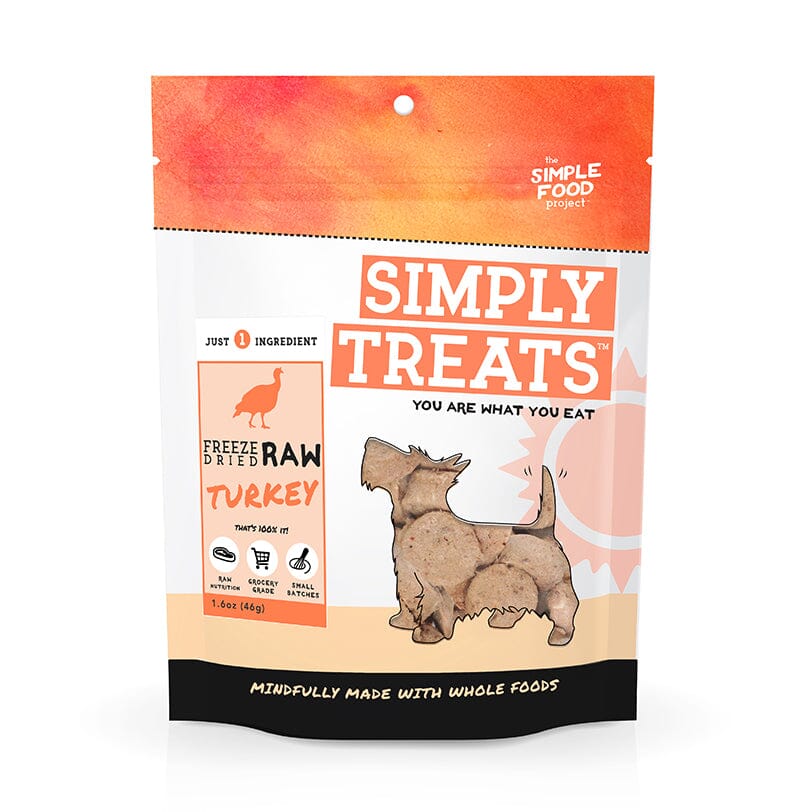
Natural Treatments for Dog Dementia (Canine Cognitive Dysfunction)

What is Dog Dementia (Canine Cognitive Dysfunction)?
Canine Cognitive Dysfunction (CCD), also known as cognitive dysfunction syndrome (CDS) or dog dementia, is a condition that affects older dogs and is characterized by progressive mental decline and behavioral changes similar to Alzheimer's disease in humans. It is a common neurobehavioral disorder in senior dogs.
The veterinary medical community does not fully understand the exact cause of CCD, but believes it's a result of age-related changes in the brain.
Similar to humans, dogs experience a decline in cognitive function as they age. Some of the changes associated with CCD include the accumulation of abnormal proteins in the brain, reduced blood flow to the brain, and oxidative stress, which can lead to cell damage.
Signs of Dog Dementia
Of course, you'll want to see your veterinarian for a definitive diagnosis. However, there are some tell-tale signs that indicate cognitive decline.
The symptoms of canine cognitive dysfunction can vary from dog to dog but often include:
- Disorientation: Dogs with CCD may become confused, seem lost in familiar environments, or get stuck in corners.
- Changes in sleep patterns: Dogs may experience insomnia or restlessness at night and increased sleepiness during the day.
- Altered social interactions: Affected dogs may become more withdrawn, avoid interaction with family members, or display changes in their relationships with other pets.
- Loss of house-training: Dogs may forget their house-training and have accidents indoors.
- Changes in activity level: Dogs may become less active, lose interest in toys or games, and display reduced enthusiasm for previously enjoyed activities.
- Anxiety and agitation: Some dogs with CCD may exhibit signs of anxiety, restlessness, increased barking, or pacing.
- Memory loss: Dogs may forget familiar cues or commands, have difficulty finding objects, or become disoriented on walks.
What You Can Do to Help
While the management of canine cognitive dysfunction (CCD) should ideally involve guidance from your veterinarian, there are some things you can do at home to help support your dog:
- Establish a Routine: Maintain a consistent daily routine for your dog, including regular feeding times, exercise, and sleep schedules. Predictability can provide a sense of comfort and stability for dogs with CCD.
- Provide Mental Stimulation: Engage your dog in mentally stimulating activities to help keep his brain active. Puzzle toys, treat-dispensing toys, and interactive games can help provide mental stimulation and keep their cognitive abilities sharp.
- Environmental Enrichment: Create an enriching environment for your dog. Provide them with toys, sensory experiences (such as different textures and sounds), and opportunities to explore and interact with their surroundings.
- Maintain Physical Exercise: Regular exercise is important for your dog's overall well-being. It helps improve blood circulation, reduces anxiety, and promotes mental and physical stimulation. Adjust the exercise routine to suit your dog's age and abilities.
- Diet and Supplements: A balanced and nutritious diet is essential for your dog's health. Speak to your veterinarian about diets specifically formulated for senior dogs or those with cognitive dysfunction. Additionally, certain dietary supplements (such as antioxidants, omega-3 fatty acids, and cognitive-supportive nutrients) may be beneficial for dogs with CCD. Always consult your vet before introducing any supplements.
- Safety Measures: Ensure your home is safe and secure for your dog. Remove any hazards or obstacles that may lead to accidents or confusion. Consider using baby gates to restrict access to potentially dangerous areas and provide them with a comfortable and easily accessible resting area.
- Medications and Supplements: Your veterinarian may prescribe medications or supplements to help manage the symptoms of CCD. These may include medications that improve cognitive function or address specific behavioral issues. Always follow your vet's recommendations and instructions regarding medications.
- Quality Time and Affection: Provide your dog with plenty of love, attention, and positive reinforcement. Engage in activities that your dog enjoys and spend quality time together. This can help reduce anxiety, strengthen the bond between you, and provide emotional support.
Our Top Products for Dog Dementia
We have some excellent products for helping manage dog dementia. Of course, you should check with your veterinarian before starting on any new supplements, especially if your dog is currently taking medication.
The following are our top supplements for managing canine cognitive dysfunction.
Herbsmith Senior Dog Wisdom
Herbsmith Senior Dog Wisdom is a veterinarian-developed supplement containing L-Carnitine, Alpha Lipoic Acid, L-Leucine, L-Isoleucine, L-Valine, Ginkgo Biloba, Betain, and DHA Gold. The combination of ingredients supports nerve conduction, memory recall, and oxygen utilization by the brain.
Vet Classics Salmon Oil
Vet Classics Salmon Oil is another veterinarian-developed supplement. Salmon oil contains high levels of omega-3 fatty acids, which are essential for proper brain function and development. Specifically, the omega-3 fatty acids EPA and DHA have been found to have neuroprotective effects and promote healthy brain aging. Salmon oil may help improve memory, reduce inflammation, and enhance brain plasticity.
Ayush Pet Cocurcumin MCT Coconut Milk Powder
Ayush Pet Cocurcumin MCT Coconut Milk Powder is an Ayurvedic product that provides MCT, Turmeric (Curcumin), Trikatu, and CoQ10 in a proprietary formulation that enhances the bioavailability of curcuminoids. MCT offers neuroprotective effects and increased blood flow to the brain. Curcumin boosts brain-derived neurotrophic factor (BDNF) levels, a protein that promotes brain neurons' growth and survival. Trikatu increases blood flow to the brain and enhances neurotransmitter activity. CoQ10 enhances mitochondrial function in brain cells, regulates neurotransmitters, and helps reduce oxidative stress and inflammation in the brain.
Sodium Ascorbate Vitamin C
Sodium Ascorbate Vitamin C is a powerful antioxidant. It is a neutral pH form of vitamin C. Being neutral in pH, it doesn't have the sour/acidic flavor of regular vitamin C (ascorbic acid) and is easily mixed into food, leaving the taste of the food unchanged.
Vitamin C protects brain cells and help prevents cognitive decline. It also supports the production of neurotransmitters such as dopamine, norepinephrine, and serotonin.
Our veterinarians recommend the following supplementation schedule for dog dementia:
- Dogs 10 lbs or less: 1/16 tsp mixed in food twice daily
- Dogs 11-20 lbs: 1/8 tsp mixed in food twice daily
- Dogs 20-30 lbs: 2/8 tsp mixed in food twice daily
- Dogs 30-40 lbs: 3/8 tsp mixed in food twice daily
- Dogs 41-50 lbs: 1/2 tsp mixed in food twice daily
- Dogs 50+ lbs: 3/4 tsp mixed in food twice daily
K9 Select Melatonin
Melatonin may improve attention, memory, and sleep quality. It also has neuroprotective effects. For dogs who have trouble sleeping at night or those with obsessive pacing/barking behaviors, melatonin can be helpful. This supplement should be given 30 minutes before bedtime.
TCVM Herbs for Canine Cognitive Dysfunction
There are also some TCVM (Traditional Chinese Veterinary Medicine) herbal formulas available to help with dog dementia. However, TCVM herbs require an veterinarian's authorization.
The two formulas our vets most often use are Tang Kuei Harmonize Yin and Stasis in Mansion of Mind.
- Tang Kuei Harmonize Yin helps older, yin-deficient dogs with a dry, hacking cough, restlessness at night (the yin time of the day), dementia and senility, and hyperthyroidism.
- Stasis in Mansion of Mind helps animals suffering from seizures, head trauma, vetibular disease, brain tumors, dementia, and cognitive decline.
What Are You Feeding Your Dog?
Another thing to think about is what you are feeding your dog. A healthy diet is the basis of all health, especially brain health.
Our veterinarians created a complete food therapy system using their knowledge of Traditional Chinese Veterinary Medicine. You can learn more by downloading our free ebook. We also have pre-made food therapy products available in our store.
My Personal Experience with Dog Food
I know from personal experience how well the food therapy program works. When I first started working for our vets, my German Shorthaired Pointer, Ko Ko, was fourteen. She was already starting to have trouble getting up and down the stairs.
I started cooking for her, following the recipes in the ebook. Within about a month, her coat was fuller and she was getting up and down the stairs with no problem again. She even started letting herself out of the backyard gate again (unfortunately) like she did when she was five.
Sadly, Ko Ko is no longer with us. She passed away a week before her 20th birthday. She developed adenocarcinoma when she was 18, which Dr. Smith helped us manage by removing the tumors and using various TCVM herbs and supplements. I am very thankful, because she was happy, felt good, and did surprisingly well up until the end.
Need Extra Help Managing Your Dog's Dementia?
If you ever feel like you need extra help in managing your dog's health challenges naturally or with TCVM herbal blends, we can help.
TCVM Pet Supply co-founders Dr. Marc Smith and Dr. Casey Damron offer TCVM telemedicine consultations.
If you get a TCVM telemedicine consultation, you'll get personalized TCVM recommendations specific to your cat, including:
- TCVM Evaluation
- Food Therapy Recommendations
- TCVM Herb Recommendations & Veterinary Authorization
- Supplement Recommendations
- Alternative Medicine Recommendations
If you reside in the Middle Tennessee area or would like to commute, you may choose an in-clinic appointment instead.
You can learn more about each vet and contact the clinic you prefer to set up your consult:
- Marc Smith, DVM, MS - Natchez Trace Veterinary Services
-
Casey Damron, DVM, CVA - White Oak Animal Hospital
We hope this information helps you and wish you the best in helping your dog feel better.
If you have any other questions or if we can help you in any way, just let us know!

